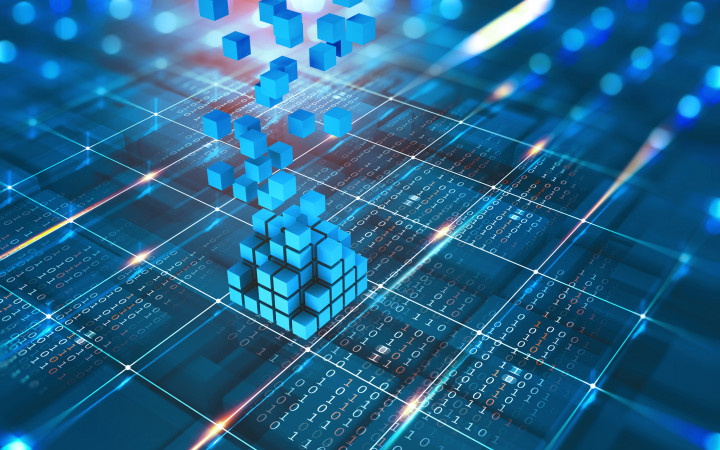Today’s Wonder of the Day was inspired by WonderTeam. WonderTeam Wonders, “What is a blockchain?” Thanks for WONDERing with us, WonderTeam!
Have you ever heard of Bitcoin? It’s a cryptocurrency. The mysterious Satoshi Nakamoto created it in 2009. Today, many people use Bitcoin. And it’s made possible by the topic of today’s Wonder of the Day—blockchain.
Blockchain seems new to many people today. But it has actually been around since 1991. Two researchers named Stuart Haber and W. Scott Stornetta came up with the technology. They were looking for a safer way to timestamp documents. It wasn’t until 2009 that blockchain became more widely known because of its use in Bitcoin.
What is blockchain? Start by picturing it as just that—a chain of blocks. Each block stores data. This could be information on transactions, such as the amount of Bitcoin traded for goods. Blocks also hold the hash, which is a code unique to each block. Each block also stores the hash of the block before it.
Information stored in a blockchain is very difficult to change. That’s because it’s shared across a network of computers called nodes. Changing the data in any block requires approval from all the nodes. This can be nearly impossible, as there might be thousands of nodes linked in one blockchain.
How do people use blockchain? Computer gaming is one realm that has embraced this technology. In many cases, blockchain gaming uses cryptocurrencies, which gamers can earn and spend in the game. But there are plenty of other uses. One example is the game CryptoKitties. This game uses blockchain to store data on virtual cats that users breed and trade.
Many believe that one day, gamers will use blockchain on a larger scale. They expect more games to use it to store purchase data. It could also help to stop fraud by keeping usernames and passwords safe.
How else could people use blockchain? Some believe it could store government documents, like driver’s licenses and marriage certificates. People are also working to use blockchain to store voting information. It could help people control their personal data and how it’s shared online in the future. The possibilities seem to be endless.
What would you do with blockchain technology? Would you shake up online gaming? Will you help people protect their data? Maybe you’d change the way governments store information. The next big application could come from you!
Standards: NGSS.PS4.C, NGSS.ETS1.B, CCRA.L.3, CCRA.L.6, CCRA.R.1, CCRA.R.2, CCRA.R.4, CCRA.R.10, CCRA.SL.1, CCRA.SL.2, CCRA.W.2, CCRA.W.9, CCRA.L.1, CCRA.L.2, CCRA.W.9




